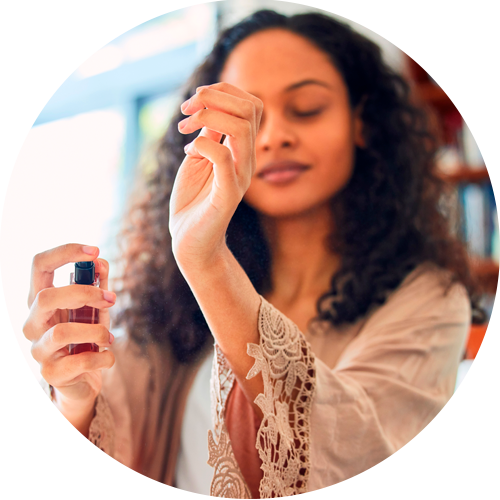World Allergy Day, celebrated every July 8, is a chance to raise awareness about the challenges faced by millions of people living with various allergic conditions.
When we think about allergies, pollen, foods, or ingredients that must be labeled usually come to mind. But there is also a group of consumers who associate allergic reactions with cosmetic products—especially fragrances.
In recent years, international regulations—particularly in Europe—have put special emphasis on this issue, setting standards for the safe use of cosmetic ingredients that may cause sensitivities.
One of the most common beliefs is that “fragrances cause allergies.” But how true is that? And what is the industry doing to ensure consumer safety?
Today, we want to debunk that idea and share how at Cramer Latam we develop safe, regulated, and responsible fragrances.
Do fragrances cause allergies?
The answer isn’t black and white. Some people may be sensitive to certain compounds, but the vast majority of commercial fragrances are carefully formulated to minimize risks. Today, the industry uses ingredients that are assessed, approved, and controlled, and applies maximum concentration limits depending on the product category.
What about allergens?
Currently, a major focus in the cosmetics industry is the management of allergens—substances that can cause reactions in sensitive individuals.
Until recently, there were 26 allergens required to be declared when used in cosmetic products. However, in line with the latest toxicological studies and calls for greater transparency, the European Union has expanded this list to 81 allergens that must be included on labels if they exceed certain thresholds.
At Cramer Latam, we are already adhering to this new regulation, and we assess our formulas to ensure compliance and consumer protection.
Can I use fragrances if I have sensitive skin?
In general, fragrances formulated according to current regulations and properly applied should not cause issues for healthy skin. Even so, if you have a history of sensitivity or allergies, we recommend:
- Reading labels carefully.
- Doing a patch test before using.
- Consulting a specialist if you have any queries.
The new allergen list provides more information and transparency, helping consumers make more informed decisions when selecting products.
What role does the IFRA play?
The International Fragrance Association (IFRA) is the organization responsible for leading global regulation of fragrance use. Its mission is to ensure the safe use of aromatic raw materials for people and the environment.
Its functions include:
- Assessing the safety of thousands of aromatic ingredients used in fragrances worldwide.
- Establishing usage recommendations based on the type of application.
It is important to note that when it comes to allergen labeling in cosmetic products, the regulation comes directly from the European Economic Community, which defines which substances must be declared and at what concentrations.
What do we do?
All our fragrances for cosmetic use are developed under strict technical and regulatory criteria:
✔️ Formulation according to the current IFRA Code of Practice.
✔️ Exclusive use of approved and controlled raw materials.
✔️ Respect for maximum allowable concentrations by application.
✔️ Assessment and management of allergen content, including the new 81 identified allergens.
✔️ Technical certification and documentary support for every development.
Our team of perfumers and fragrance evaluators works to ensure that each fragrance is not only sensorially appealing, but also safe.
Our commitment
On this World Allergy Day, we reaffirm our commitment to developing responsible, regulated, and emotionally memorable fragrances.
We believe that the pleasure of smelling good should go hand-in-hand with wellbeing. That’s why at Cramer Latam, we apply international best practices to offer scents that not only delight, but also protect the people who use them.
Because behind every fragrance we design, there’s science, regulation, and a deep respect for health.
You can also find us on






